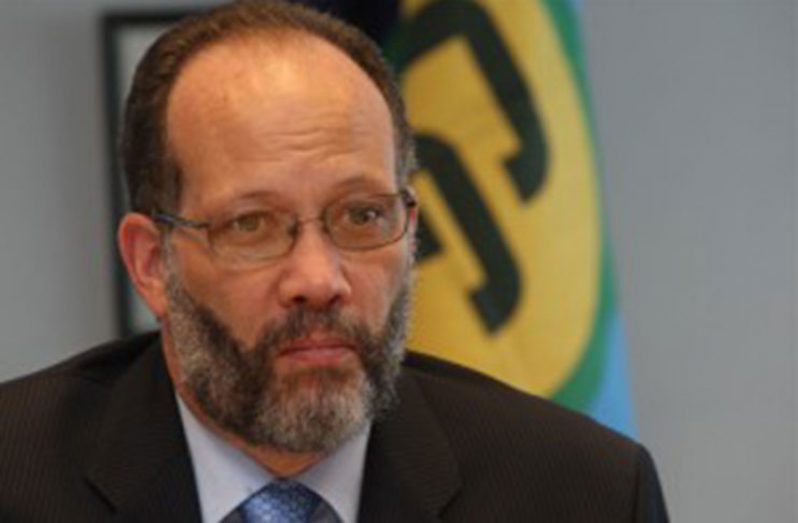…but SG says some countries yet to pass legislation, implement admin procedures
By Navendra Seoraj in St Lucia
ALTHOUGH there has been greater progress in implementation of the Caribbean Community (CARICOM) Single Market and Economy (CSME) among member states, Secretary-General of CARICOM, Irwin LaRocque, said their needs to be more “hand- holding” in order to get things done.
The CSME is an arrangement among the CARICOM states for the creation of a single, enlarged economic space through the removal of restrictions, resulting in the free movement of goods, services, people, capital and technology.
Under the CSME, member states have agreed to 10 categories and were given the opportunity to pass legislation or, in the interim, implement administrative procedures.
“What we are finding is that there are member states who have not passed the legislation but, worse, those who have not put the administrative procedures in place,” said LaRocque during a press briefing at the studio of the Government Information Services in Saint Lucia, on Tuesday.
In an effort to ensure that member states follow through on their commitments, CARICOM had engaged in one-on-one meetings with countries, a process which has proven to be helpful in the process.
“We have seen progress with these one-on-one meetings but, we need to do more hand-holding,” said LaRocque, adding that member states sometimes lack understanding.
More discussions on the implementation of measures to enhance the CSME will be high on the agenda at the 40th Regular Meeting of CARICOM Heads of Government in Saint Lucia. The meeting will be held on July 3-5 at the Sandals Grande St. Lucian Hotel.
Heads of Government are expected to build on the St. Ann’s Declaration, which was approved at the 18th Special Meeting on the CSME, in Trinidad and Tobago last December.
The declaration, which confirmed the CSME as still the most viable platform to support the Region’s growth and development agenda, put forward several measures for determined action.
Among the measures are a more formalised, structured mechanism for engagement with the Region’s private sector and labour; expansion of the categories of skilled nationals entitled to move freely and work within the community, to include agricultural workers, beauty service practitioners, barbers and security guards; ensuring community-wide recognition of each member state-issued CARICOM Skills Certificate; reinforcing regional security mechanisms; and permitting the Region’s citizens and companies to participate in public procurement processes across the community.
December’s Special Meeting had appointed a broad-based 10-member team, under economist, Professor Avinash Persaud, to a restructured CARICOM Commission on the economy to advise member states on a growth agenda for the community. An update on this will be provided at the meeting.
CARICOM will also be engaging the regional private sector, labour and civil society, which will represent the people who use the CSME. This, he said, will help the community to hear how best they can make the CSME more user-friendly.
“We are seeking to be more consultative with the stakeholders,” said LaRocque, adding, that more persons will be consulted as they go along.



.jpg)











